Source:- Google.com.pk
Black Woman Paintings Biography
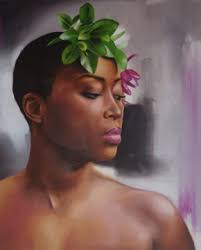
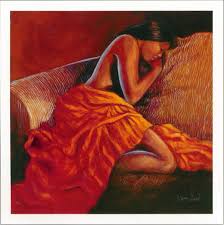

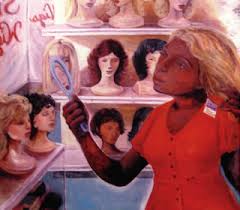

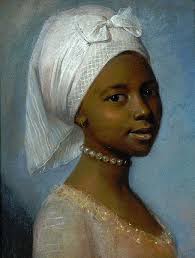
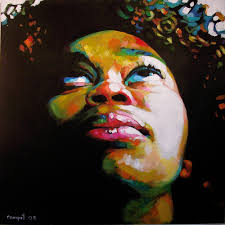

Black Woman Paintings Biography
She was born in Paris, the daughter of a civil servant. Her training as an artist began in 1781 under Élisabeth Vigée Le Brun, and she entered Jacques-Louis David's atelier in 1786 along with her sister Marie-Élisabeth Laville-Leroux.
The poet Charles-Albert Demoustier, who met her in 1784, was inspired by her in creating the character Émile in his work Lettres à Émilie sur la mythologie (1801).
In 1791 she exhibited for the first time in the Salon de Paris, displaying her mythology-inspired picture Psyché faisant ses adieux à sa famille. Another of her paintings of this period, L'Innocence entre la vertu et le vice, is similarly mythological and reveals her feminist interests—in this picture, vice is represented by a man, although it was traditionally represented by a woman. In 1793, she married the lawyer Pierre-Vincent Benoist.
Her work, reflecting the influence of Jacques-Louis David, tended increasingly toward history painting by 1795. In 1800, she exhibited Portrait d'une négresse in the Salon. Six years previously, slavery had been abolished, and this image became a symbol for women's emancipation and black people's rights. This picture was acquired by Louis XVIII for France in 1818.
Elisa Bonaparte, Emperor Napoleon's sister and Duchess of Lucca, painted by Marie Guilhelmine Benoist about 1805
An important commission, for a full-length portrait of Napoléon Bonaparte—Premier Consul Français in this period—was awarded to her in 1803. This portrait was to be sent to the city of Ghent, newly ceded to France by the Treaty of Lunéville in 1801. Other honors came to her; she was awarded a Gold Medal in the Salon of 1804, and received a governmental allowance. During this time she opened an atelier for the artistic training of women.
Her career was harmed by political developments, however, when her husband, the convinced royalist count Benoist, was nominated in the Conseil d'État during the post-1814 monarchy come-back called the Bourbon Restoration. Despite being at the height of her popularity, she has to abandon her career, both painting and exposing, due to her devoir de réserve and the strongly enforced conservatism of the reactionary regime.
[edit]Works
Psyché faisant ses adieux a sa famille (1791)
L'Innocence entre la vertu et le vice
Portrait d’une négresse (1800, Musée du Louvre)
Portrait de Napoléon (1804, court of Ghent)
Portrait du Maréchal Brune (1805, détruit ; une copie se trouve au Musée du Château de Versailles)
Portrait de Pauline Borghèse (1807, Musée du Château de Versailles)
Portrait de Marie-Élise, grande duchesse de Toscane (Pinacoteca Nazionale, Lucca)
Portrait de l’impératrice Marie-Louise (Château de Fontainebleau)
La lecture de la Bible, (1810, musée municipal, Louviers)
La Consultation ou La Diseuse de bonne-aventure, Saintes Musée municipal.
[edit]Bibliography
Marie-Juliette Ballot, Une élève de David, La Comtesse Benoist, L'Émilie de Demoustier, 1768-1826, Plon, Paris, 1914
Astrid Reuter, Marie-Guilhelmine Benoist, Gestaltungsräume einer Künstlerin um 1800, Lukas Verlag, Berlin, 2002
The poet Charles-Albert Demoustier, who met her in 1784, was inspired by her in creating the character Émile in his work Lettres à Émilie sur la mythologie (1801).
In 1791 she exhibited for the first time in the Salon de Paris, displaying her mythology-inspired picture Psyché faisant ses adieux à sa famille. Another of her paintings of this period, L'Innocence entre la vertu et le vice, is similarly mythological and reveals her feminist interests—in this picture, vice is represented by a man, although it was traditionally represented by a woman. In 1793, she married the lawyer Pierre-Vincent Benoist.
Her work, reflecting the influence of Jacques-Louis David, tended increasingly toward history painting by 1795. In 1800, she exhibited Portrait d'une négresse in the Salon. Six years previously, slavery had been abolished, and this image became a symbol for women's emancipation and black people's rights. This picture was acquired by Louis XVIII for France in 1818.
Elisa Bonaparte, Emperor Napoleon's sister and Duchess of Lucca, painted by Marie Guilhelmine Benoist about 1805
An important commission, for a full-length portrait of Napoléon Bonaparte—Premier Consul Français in this period—was awarded to her in 1803. This portrait was to be sent to the city of Ghent, newly ceded to France by the Treaty of Lunéville in 1801. Other honors came to her; she was awarded a Gold Medal in the Salon of 1804, and received a governmental allowance. During this time she opened an atelier for the artistic training of women.
Her career was harmed by political developments, however, when her husband, the convinced royalist count Benoist, was nominated in the Conseil d'État during the post-1814 monarchy come-back called the Bourbon Restoration. Despite being at the height of her popularity, she has to abandon her career, both painting and exposing, due to her devoir de réserve and the strongly enforced conservatism of the reactionary regime.
[edit]Works
Psyché faisant ses adieux a sa famille (1791)
L'Innocence entre la vertu et le vice
Portrait d’une négresse (1800, Musée du Louvre)
Portrait de Napoléon (1804, court of Ghent)
Portrait du Maréchal Brune (1805, détruit ; une copie se trouve au Musée du Château de Versailles)
Portrait de Pauline Borghèse (1807, Musée du Château de Versailles)
Portrait de Marie-Élise, grande duchesse de Toscane (Pinacoteca Nazionale, Lucca)
Portrait de l’impératrice Marie-Louise (Château de Fontainebleau)
La lecture de la Bible, (1810, musée municipal, Louviers)
La Consultation ou La Diseuse de bonne-aventure, Saintes Musée municipal.
[edit]Bibliography
Marie-Juliette Ballot, Une élève de David, La Comtesse Benoist, L'Émilie de Demoustier, 1768-1826, Plon, Paris, 1914
Astrid Reuter, Marie-Guilhelmine Benoist, Gestaltungsräume einer Künstlerin um 1800, Lukas Verlag, Berlin, 2002
Black Woman Paintings
Black Woman Paintings
Black Woman Paintings
Black Woman Paintings
Black Woman Paintings
Black Woman Paintings
Black Woman Paintings
Black Woman Paintings
Black Woman Paintings
African American Women Paintings
Beautiful Black Women Art
No comments:
Post a Comment